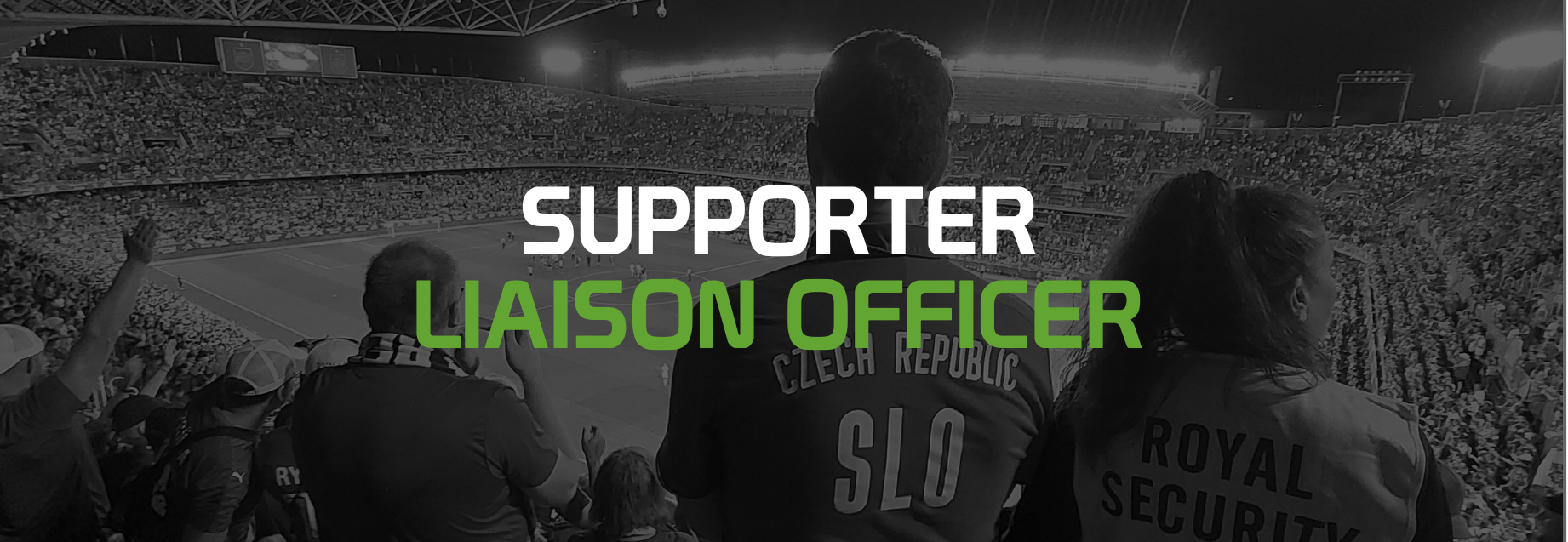What Is An SLO?
SLOs act as a bridge between football clubs and supporters by providing a two-way flow of information around key topical issues.
The role, first created in Germany, ensures that fans’ voices are heard within every club’s internal structure while working to ensure an enjoyable match day experience for everyone in the stadium.
SLOs work with many different departments within a football club but their expertise is focused on supporters. An SLO needs to have a deep insight into their club’s fan culture but also the capability to establish and maintain trusting relationships with different stakeholders including a variety of supporter groups, club staff, police representatives, social workers and their counterparts at other clubs.
Football clubs competing in European club competitions are required to appoint a supporter liaison officer (SLO) under Uefa licensing (Article 45) since 2010. Many football associations and leagues have since made the appointment of an SLO a requirement of their own domestic licensing process.
I’m A Newly Appointed SLO, Where Can I Learn More About My Role?
The SLO role is one full of potential for both you and your football club. With the right approach and support from your colleagues, your work can make a significantly positive impact.
In countries including Germany and Sweden, the role is considered to be a critical element of the club’s structure with many top-tier football clubs employing a team of full-time SLOs to manage and enhance relations with supporters. However, many SLOs in Europe are still appointed on a voluntary or part-time basis.
A great place to start to learn about the various elements of the role is the UEFA supporter liaison officer handbook (2011), which not only gives a broad background to the role but lots of practical advice and case studies in addition to the 2021 UEFA Practical Guide to Supporter Liaison.
I Am An SLO Coordinator. What Do I Need To Know?
Though the SLO role has been established by a number of Uefa member associations for some time, its development is still in the infancy stage for other football associations, leagues and clubs.
As mentioned above, the UEFA Supporter Liaison Officer Handbook (2011) and UEFA Practical Guide To Supporter Liaison (2021) are a great place to start.
In addition, FSE (and previously SD Europe), is tasked with implementing the role on behalf of Uefa since 2010, so we are happy to share our knowledge and experience, advise on initial steps and help you prepare a tailored development plan if needs be. Contact us for additional support.
I Am A Supporter. What Does This Role Mean For Me?
As the democratic voice of European football fans, FSE believes supporters should have their voices heard at the very highest levels within clubs, leagues and football associations.
The SLO role is one of the ways this can be achieved, by ensuring that there is a dedicated resource that considers the possible impacts of decisions and clubs’ actions on supporters and their match day experience on an ongoing basis.
The role of the SLO is to facilitate dialogue, not lead it. SLOs work constructively with supporters’ groups as well as individual fans across Europe; however, they are not representatives of those supporters’ groups or supporters. They are appointed by the club and exist to improve dialogue and relationships around the club environment. Fans still need to be organised and come together to push for improvements in their own right.
The UEFA Practical Guide To Supporter Liaison
The UEFA Practical Guide to Supporter Liaison was launched in November 2021, which was written, edited and produced in a collaborative process between UEFA and SLO experts. This landmark document complements the 2011 UEFA SLO handbook, which offers a more theoretical introduction to the SLO role, and it makes a welcome contribution to the professionalisation of the SLO role.
Additional Guidance
FSE facilitates the implementation of the supporter liaison officer (SLO) role on behalf of Uefa and working with National Associations and Leagues. It is available to provide additional support where needed. You can read more about our work here: Implementing the SLO. Get in touch here.
